-
Latest Version
Resource Hacker 5.2.8 Build 448 LATEST
-
Review by
-
Operating System
Windows 7 / Windows 8 / Windows 10 / Windows 11
-
User Rating
Click to vote -
Author / Product
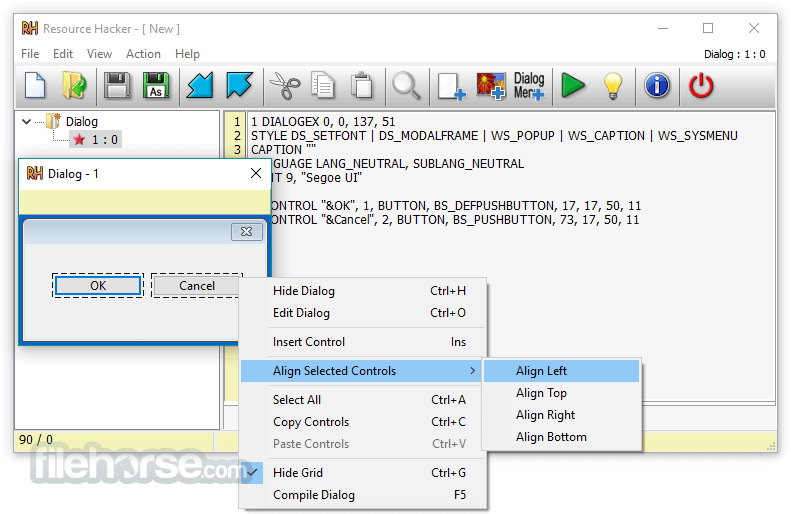
While Resource Hacker™ is primarily a GUI application, it also provides many options for compiling and decompiling resources from the command-line.
Compiling can be initiated either by opening an existing resource script file or by creating one from scratch using Resource Hacker's editor.
Once a resource file has been opened, its resources will generally be displayed as either an image (or group of images) or as decompiled text.
Binary resources, usually images, can't be edited directly with the app, but they can still be very easily exported and imported once they've been modified by an external image editor. (I see no benefit in duplicating what third-party image editors do so well.)
Just about all the functionality of Resource Hacker™ can be accessed from the command line without having to open the Resource Hacker™ GUI. Command-line instructions and Resource Hacker™ scripts can remove the drudgery entailed with repeating Resource Hacker™ tasks.
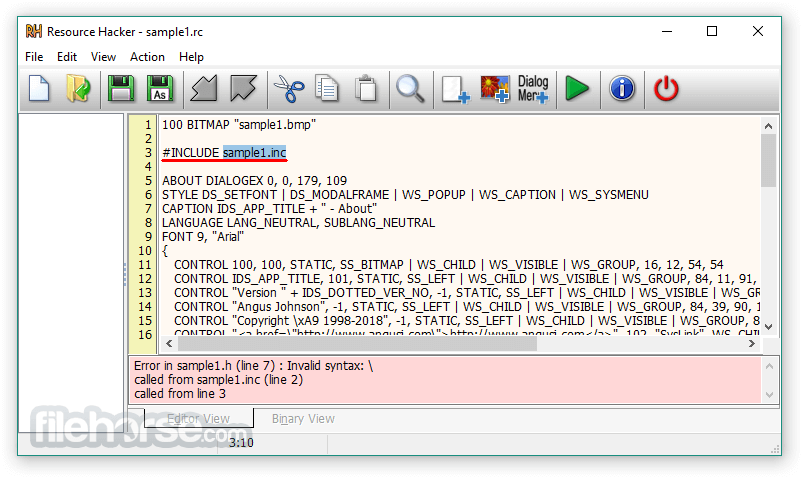
Some executable files are "packed" or "compressed" using compression algorithms. Not only does this reduces file size, but it also makes viewing and modifying resources marginally more difficult.
I suspect that this resource 'hiding' is (or was) a common objective in this process. Anyhow, in deference to these authors, I've chosen not to unpack files with the program.
As a side note, it seems that "packed" executables have become quite uncommon over the last 5-10 years, and software authors are exposing more rather than less information in executable resources.
I suspect that earlier concerns about the loss of intellectual property with reverse engineering have been allayed.
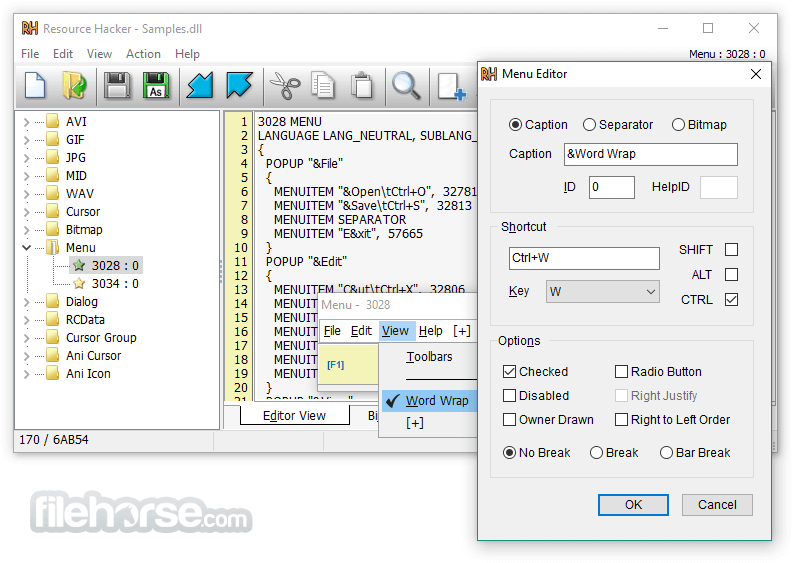
Features and Highlights
- View resources in Win32 executable files (*.exe, *.dll, *.cpl, *.ocx) and in Win32 resource files (*.res) in both their compiled and decompiled formats.
- Extract (save) resources to file in: *.res format; as a binary; or as decompiled resource scripts or images. Icons, bitmaps, cursors, menus, dialogs, string tables, massage tables, accelerators, Borland forms, and version info resources can
- be fully decompiled into their respective formats, whether as image files or *.rc text files.
- Modify (rename or replace) resources in executables. Image resources (icons, cursors, and bitmaps) can be replaced with an image from a corresponding image file (*.ico, *.cur, *.bmp),
- a *.res file, or even another *.exe file. Dialogs, menus, string tables, accelerators, and message table resource scripts (and also Borland forms) can be edited and recompiled using the internal resource script editor.
- Resources can also be replaced with resources from a *.res file as long as the replacement resource is of the same type and has the same name.
- Add new resources to executables. Enable a program to support multiple languages, or add a custom icon or bitmap (company logo, etc) to a program's dialog.
- Delete resources. Most compilers add resources into applications that are never used by the application. Removing these unused resources can reduce an application's size.
- Open Resource Hacker – Launch the software and load an executable (.exe), DLL, or other resource file.
- View Resources – Navigate through icons, dialogs, images, and other resources in the left panel.
- Modify Text & Images – Edit dialogs, menu text, or replace images/icons within the file.
- Extract Resources – Save icons, images, and other assets from an executable to your PC.
- Replace Resources – Swap out images, icons, or dialog elements with custom ones.
- Edit Executable Properties – Modify version info, copyright details, or application name.
- Compile Scripts – After making changes, compile the resource script to apply modifications.
- Save or Save As – Save changes directly or create a backup by saving as a new file.
- Test the Modified File – Run the edited executable to check if the changes work correctly.
- Revert if Needed – If errors occur, restore the original file from backup or retry changes.
- Free and Lightweight Tool
- Supports Various File Formats
- User-Friendly Interface
- Powerful Resource Editing Features
- Frequent Updates and Support
- Limited Advanced Functionality
- Windows-Only Compatibility
- Risk of File Corruption
- No Built-In Undo Functionality
What's new in this version:
Resource Hacker 5.2.8 Build 448
- fixed bug compiling controls with -1 id in DialogEx
Resource Hacker 5.2.7 Build 427
- fixed minor bugs in commandline scripts
Resource Hacker 5.2.6 Build 425
Fixed:
- a bug incorrectly detecting text encoding
- several other minor bugs
Resource Hacker 5.2.5 Build 409
- added a scale slider to the image viewer (right-click)
- fixed messagebox dialogs missing icons
- fixed crash when viewing another resource after an animated GIF
 OperaOpera 125.0 Build 5729.21 (64-bit)
OperaOpera 125.0 Build 5729.21 (64-bit) MalwarebytesMalwarebytes Premium 5.4.5
MalwarebytesMalwarebytes Premium 5.4.5 PhotoshopAdobe Photoshop CC 2026 27.1 (64-bit)
PhotoshopAdobe Photoshop CC 2026 27.1 (64-bit) BlueStacksBlueStacks 10.42.153.1001
BlueStacksBlueStacks 10.42.153.1001 OKXOKX - Buy Bitcoin or Ethereum
OKXOKX - Buy Bitcoin or Ethereum Premiere ProAdobe Premiere Pro CC 2025 25.6.3
Premiere ProAdobe Premiere Pro CC 2025 25.6.3 PC RepairPC Repair Tool 2025
PC RepairPC Repair Tool 2025 Hero WarsHero Wars - Online Action Game
Hero WarsHero Wars - Online Action Game TradingViewTradingView - Trusted by 60 Million Traders
TradingViewTradingView - Trusted by 60 Million Traders Edraw AIEdraw AI - AI-Powered Visual Collaboration
Edraw AIEdraw AI - AI-Powered Visual Collaboration

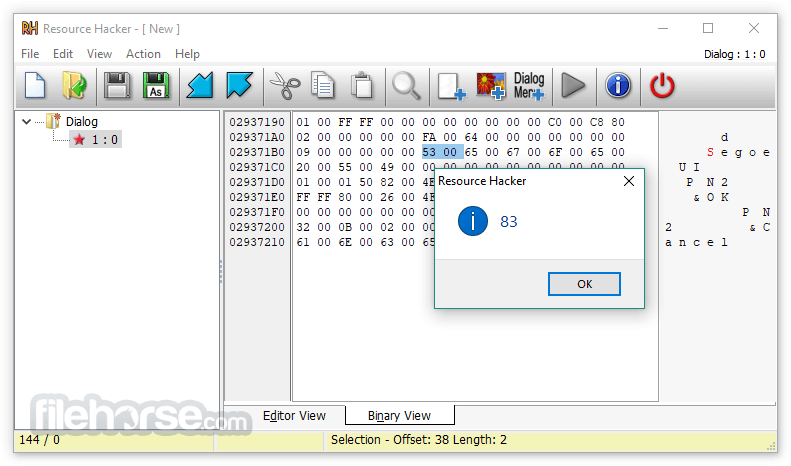
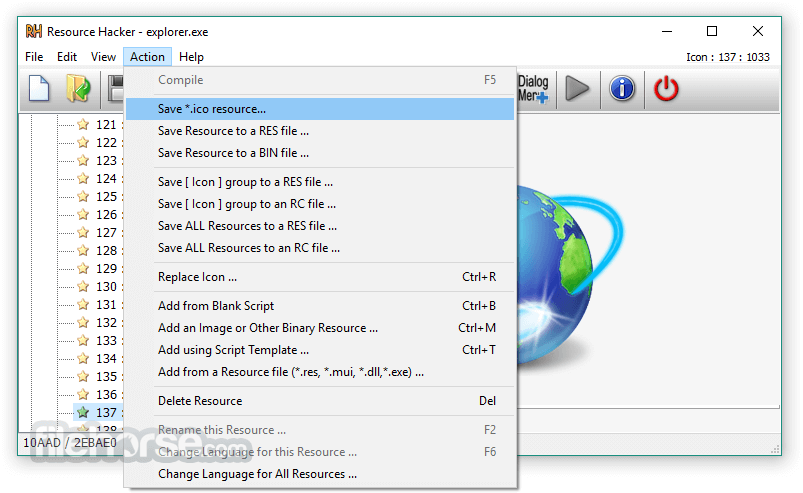





Comments and User Reviews